Conversations are an important starting point in bridging differences. In the face of growing polarisation that threatens to divide us, conversations help build greater understanding and strengthen mutual trust among people of different backgrounds and perspectives.
“There are instances of bias [towards people of different races]... So having these conversations with more people from various backgrounds, you can actually understand why they derive certain conclusions.”
- Muhamad Tassri, Participant, Launch of NYC’s “Beneath the Surface” Civic Conversations Toolkit (The Straits Times)
Listen to what Minister Edwin Tong had to say about the significance of nurturing safe and respectful spaces to address divisive issues in society. Nurturing the ability of youths to engage in thoughtful conversations on complex yet important issues such as race, religion, and local-foreigner integration is also necessary to foster constructive discussions.
“Young people may feel more comfortable discussing these topics anonymously online, but face-to-face conversations are also important as they allow for deeper conversations… people may behave irresponsibly online and discussions can turn into echo chambers.”
- Eric Chua, Senior Parliamentary Secretary, Ministry of Culture, Community and Youth (The Straits Times)
Civic Conversations Toolkit
As of 2023, NYC has developed two civic conversation toolkits to provide youths with a structured framework to engage in discussions on 1) race and religion and 2) local-foreigner integration with care and empathy.
Enquiries
Interested in using NYC’s Civic Conversations Toolkits for your upcoming conversations/programmes?
SUBMIT AN ENQUIRY
"Beneath the Surface" (Race and Religion)
“Beneath the Surface” is a card-based toolkit made up of carefully crafted questions, structured game rules and localised case studies that enable youth to have meaningful and civil conversations on the topic of Race and Religion in Singapore. The toolkit is best used with a facilitator to maintain conversation rules, and comes with suggested talking prompts for youth who are new to discussing more complex issues with care.
The toolkit is made up of 5 main segments:
Who’s in the Room: Where participants introduce themselves, share their purpose for joining the dialogue and commit to conversation rules set as a group.
Insights: Where participants reflect on their own views on the topic and warm up to each other through icebreakers (e.g. How has race and/or religion showed up in your personal life?)
Expression: Where participants discuss localised case studies (e.g. casual racism in schools)
Connection: Where participants wrap up the discussion by sharing their thoughts on what they have heard or shared (e.g. What will you stop, start or continue to do after today?)
Closing Circles: Where participants affirm other participants and acknowledge their contribution to the discussion.
View a video guide to the toolkit here.

"Building Bridges" (Local-Foreigner Integration)
“Building Bridges'' is a cooperative conversational board game that provides local and non-local youth with a structured framework to engage in constructive conversations on the topic of Local-Foreigner Integration with care and empathy. As a group, the toolkit brings players together to “fix a broken bridge” by answering a combination of 12 questions that are grouped under:
Wood Tiles (Break the Ice) feature icebreaker questions that anyone can answer. Questions focus mainly on discovering cultural differences and similarities between people of different backgrounds, thoughts on the Singapore culture etc.
Clay Tiles (Examine Assumptions) feature higher-level questions which aim to provide a space for self-reflection and mutual understanding. Questions focus mainly on addressing their assumptions and curiosities towards locals/foreigners.
Concrete Tiles (Analyse Scenarios) feature scenarios of lived experiences in the perspective of locals and foreigners in Singapore. They serve to provide a foundation for greater understanding on integration challenges and discussions on how to overcome them.
View a video guide to the toolkit here.
Want to understand these topics in-depth, build informed opinions and develop the skills, values and competencies required to engage in civic conversations? Click here to explore the Civic Conversations Content Hub that NYC had developed together with TODAYonline.





